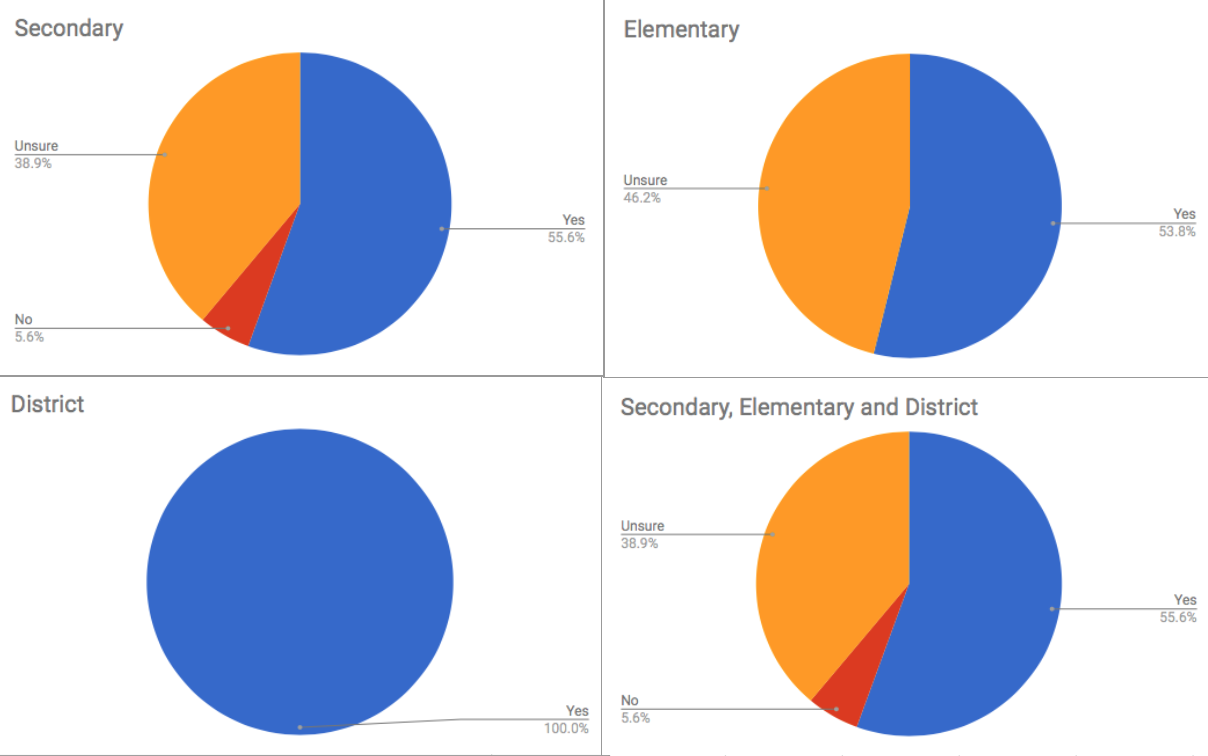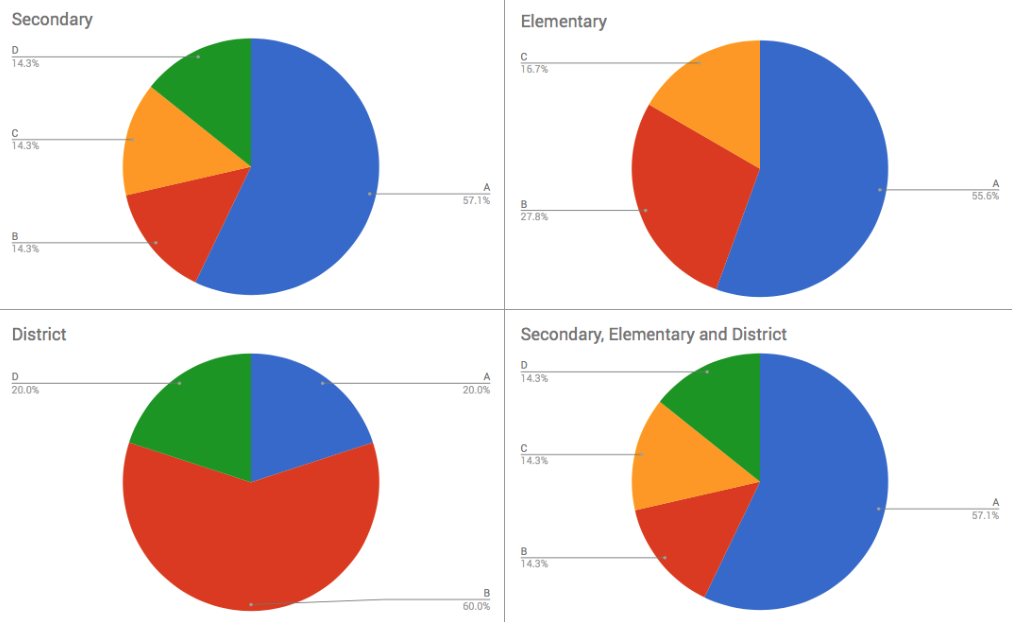December 6th EditionEquity Non-Negotiables: Articulating Your Pathway to “Success for All”by Joe Schroeder, PhD, Associate Executive Director, AWSA Aspirations are important means to a fuller life. For example, I aspire to lead a family that is stable, loving, and supportive—a goal which hopefully spurs me on to specific actions that will bring this to fruition. But if I don’t ever articulate what actions I need to take that will align my daily living to this goal, I run the risk of this high-minded aspiration ultimately serving as little more than some form of wishful thinking. The same is true for schools and school systems. A typical mission / vision statement such as “success for all” is highly aspirational. Yet the gap between the future aspiration and the current reality is often deep and wide. So the important question to hold alongside such a mission/vision statement is this: What are we collectively committing to do differently to make this aspiration a living and breathing reality for the young people and community we serve? In an increasing number of schools, the answer to such a question is found in their equity non-negotiables, which are the focus of this article, second in a three-part series regarding AWSA’s Leading for Equity Academy (LEA). Prepare Girls in Wisconsin for the Future of Work with Girls Who Codeby Reshma Saujani, CEO and Founder of Girls Who Code Computing skills are the most sought-after in the US job market, but girls across the US are being left behind. Today, less than a quarter of computing jobs are held by women, and that number is declining. In Wisconsin, there are 7,313 open computing jobs (2.8x the state average demand rate)-- and only 918 computer science graduates. By 2020, there will be 1.4 million open jobs in computing in the US, but fewer than 1 in 5 computer science graduates are women. With women making up almost half of our work force, it’s imperative for our economy that we’re preparing our girls for the future of work. I am not a coder. My background is as a lawyer and politician. In 2010, I was the first South Asian-American woman to run for Congress. When I was running for office, I spent a lot of time visiting schools, and that’s when I noticed something. In every computer lab, I saw dozens of boys learning to code and training to be tech innovators. But there were barely any girls! Early College Credit Programby Tahira Chaudhry, DPI In the 2017-19 budget, Wisconsin Act 59 (Act), the department’s Course Options and Youth Options programs were combined into a single program called the Early College Credit Program. Statutorily, this was done by reverting Course Options back to Part-Time Open Enrollment and amending the title of the Youth Options statutes to read “Early College Credit Program.” The Act aims to simplify college credit attainment for high school pupils and school districts. All changes will be effective July 1, 2018. The Course Options statute was reverted to the part-time open enrollment language that existed prior to Course Options. The revised statute allows Wisconsin public high school students to take up to two courses at a time in other Wisconsin public school districts. The part-time open enrollment statute no longer permits students to take courses at colleges, universities, charter schools, or nonprofit organizations. The statute is limited to high school students and does not permit elementary or middle school students to take courses in another district. More information can be found within the revised statute for Part-time Open Enrollment. Licensure Changes and the Role of the Principalby Bob Butler, WASB Associate Executive Director and Staff Counsel, Wisconsin Association of School Boards The Executive Budget Act for the 2017-2019 biennium made numerous changes that will affect teacher and administrative licensure. Some of the main changes are listed below:
ISTE OpportunityWe are pleased to announce that the School District of Milton's Technology Director Ed Snow is being considered for a Board of Director position on the ISTE Board of Directors. Ed is the only Wisconsin member up for consideration. If you are an ISTE member are interested in learning more about all of the candidates and voting for the Board of Directors, please click on the link below. Click here for more information. November 8th Poll ResultsIs your school district planning on how to take advantage of the mental health provisions that were enacted as part of the state budget (e.g. grants to schools and communities, funding for training, etc.,)?
December 20th EditionHow Coherent is Your School and District?by Joe Schroeder, PhD, Associate Executive Director, AWSA If you are committed to deep student impact, you want to know more about coherence. Why? Because as is detailed in Coherence: The Right Drivers in Action for Schools, Districts, and Systems (Fullan and Quinn, 2016), organizational coherence is what distinguishes schools and school systems that are making a significant impact on student success from others. Coherence involves “a combination of a small number of ambitious goals being relentlessly pursued, being vigilant about reducing distractors, helping with professional capacity building, using student and other data transparently for developmental purposes, building in strategies for implementers to learn from each other on an ongoing basis, and marking progress with lots of feedback and supportive intervention.” That’s a mouthful for sure, but it’s the sort of work -- through a variety of approaches -- that we are facilitating with teams in our SAIL Academy. College and Career Ready IEPs: Improving Outcomes for Students 3 through 21by Paula Volpiansky, School Administration Consultant, Wisconsin Department of Public Instruction Wisconsin has been a national leader in education because our values include the importance of a high-quality public education. We believe every student will graduate from our public schools, prepared for college and a career. As administrators, you hold an important role. Staff, families, and parents will look to you to model and provide direction regarding how this belief is understood and accomplished in your districts. What do students who require special education services through an Individualized Education Program (IEP) need to know in order to prepare for college and a career? In short, the same things any other student needs to know. We know that true college and career readiness is about much more than academics. We also know such readiness begins in early childhood and continues through elementary and high school. As with any student, each graduate with an IEP should leave school with the knowledge, skills, and habits needed for independence, self-determination, critical thinking, communication, collaboration, creativity, leadership, adaptability, responsibility, and perseverance. |



